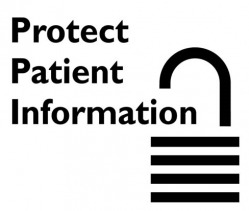Patient Privacy Rights
In the United States the documentation is especially complicated in that each state accepts different forms, and advance directives and living wills are not accepted by EMS as legally valid forms. If a patient has a living will that states the patient wishes to be DNR but does not have an appropriately filled out state sponsored form that is co-signed by a physician, EMS will attempt resuscitation. This is a little known fact to many patients and primary care physicians that can cause patients to receive treatments they do not want, and this law is currently being evaluated for a constitutional challenge.
The DNR decision by patients was first litigated in 1976 in In re Quinlan. The New Jersey Supreme Court upheld the right of Karen Ann Quinlan's parents to order her removal from artificial ventilation. In 1991 Congress passed into law the Patient Self-Determination Act that mandated hospitals honor an individual's decision in their healthcare.[6] Forty-nine states currently permit the next of kin to make medical decisions of incapacitated relatives, the exception being Missouri. Missouri has a Living Will Statute that requires two witnesses to any signed advanced directive that results in a DNR/DNI code status in the hospital.
In the U.S., cardiopulmonary resuscitation (CPR) and advanced cardiac life support (ACLS) will not be performed if a valid written "DNR" order is present. Many US states do not recognize living wills or health care proxies in the prehospital setting and prehospital personnel in those areas may be required to initiate resuscitation measures unless a specific state sponsored form is appropriately filled out and cosigned by a physician.[7][8]
[edit]Canada
Do not resuscitate orders are similar to those used in the United States. In 1995, the Canadian Medical Association, Canadian Hospital Association, Canadian Nursing Association, and Catholic Health Association of Canada worked with Canadian Bar Association clarify and create a Joint Statement on Resuscitative Interventions guideline for use to determine when and how DNR orders are assigned.[9] DNR orders must be discussed by doctors with the patient or patient agents or patient's significant others. Unilateral DNR by medicial professionals can only be used if the patient is in a vegetative state.[10]







No comments:
Post a Comment